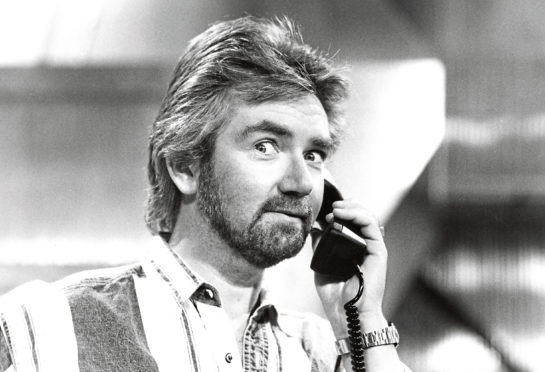The summer of 1997 was a momentous period in British history.
New Labour, under Tony Blair, had just swept into power, ending 18 years of Conservative hegemony and Downing Street’s new tenants promised to sweep away the lethargy of the previous administration.
Britpop ruled the airwaves and the death of Princess Diana united the country in a curious miasma of grief and public voyeurism.
It was, more importantly, the summer of gas deregulation.
Like thousands of others up and down the country, I got a job trying to convince people to change to a new gas supplier.
The new gas companies trying to force their way into the market didn’t recruit people themselves, they instead contracted out the work to direct marketing companies, shadowy companies that employed bozos like me on a commission-only basis to schlep door-to-door, selling anything from gas to restaurant vouchers or cheap clothing.
The office culture in these places was a mix of pseudo-inspirational and aspirational. Teams would be told various psychological selling tricks while those who made a certain number of sales in a day got to ring an actual bell in order to inspire their co-workers.
It was all like a supermarket-own brand version of Glengarry Glen Ross.
Occasionally, strange men from overseas would arrive to deliver monologues about how much money they had made, usually wearing some ostentatious watch as demonstration of their wealth, and invited us to dream of how one day we too could become a door-to-door master of the universe.
It was total garbage, of course. Those of us who were students took it about as seriously as we did anything, which is to say not at all.
Most others just viewed it as a short-term opportunity to earn some money until something better came along, and most things were better. Earning through commission is great if you’re ringing a giant bell every day, if you happened to get sent to an area were no actual properties had gas installed then your earnings for the day dropped to zero.
But there were some who actually bought into the whole concept and who thought they were on the path to riches and glory if only they believed enough in what they were being told, even if there was no evidence that anyone around them was getting rich.
Which brings us back, inevitably, to the UK’s latest, and possibly last, prime minister: Boris Johnson, a man who sells fantasy as fact.
There has been a lot of talk in recent months about something called ‘imposter syndrome’, where people feel they are somehow in over their heads. Even First Minister Nicola Sturgeon admitted sometimes falling prey to self-doubt.
Prime Minister Johnson, one suspects, has never suffered from imposter syndrome.
He is now exactly where he thinks he should be.
Despite a dismal record in office – as an MP, mayor of London and foreign secretary – he has managed to climb the greasy pole to the very top.
But he has never looked smaller than he did standing on the steps of 10 Downing Street on Wednesday where, his lifetime ambition finally fulfilled, he had absolutely nothing to say to the country other than some vague phantom-like notions of hope and future prosperity.
He was at it again the next day, promising an entirely new deal on Brexit and that by 2050 the UK will be the best performing economy in Europe.
TV presenter Noel Edmonds was ridiculed for his belief in something called Cosmic Ordering, the idea that if you want something hard enough – and write it down, because fate appreciates good penmanship – the universe will eventually deliver it to you.
This is who we have as prime minister now: someone who simply believes, and believes, somehow, that will be good enough.
Deal or no deal, that does not bode well for any of us.
If you blow it up, they will come
Dundee’s City Streets Festival proved a massive hit thanks, in no small part, to the giant luminarium at the centre of the event.
More than 3,500 people visited the 55ft-long inflatable, despite massive queues to get in.
Given the challenges facing the country’s high streets, events like the City Streets Festival are crucial to their health.
The challenge now is to top it next year.
Sizzling Scotland
Record temperatures, thunder, lightning and torrential rain: It has been a truly glorious Scottish summer.
At the risk of sounding ungrateful for the current heatwave though, if I wanted to live somewhere so humid, I’d move to Vietnam.










